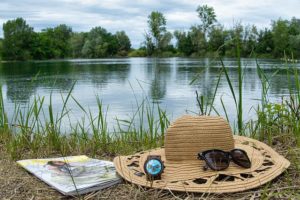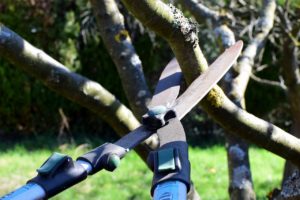Insects are not everybody’s favourite animal, but they fulfil many important tasks in a wide variety of ecosystems. They for example serve as food for other animals and are pollinators that help plants to reproduce, and they fertilize our soil. The extinction of insects endangers nature.
In the words of Albert Einstein “Stirbt die Biene, hat der Mensch noch vier Jahre zu leben. Keine Bienen mehr, keine Bestäubung mehr, keine Pflanzen mehr, keine Tiere mehr, keine Menschen mehr.” – “If the bee dies, humans have four years to live. No more bees, no more pollination, no more plants, no more animals, no more people.”
We share this beautiful planet with a diversity of animals. We should respect their habitats and needs, and try to live in harmony with all living things.
According to Section 90a of the Bürgeliches Gesetzbuch (BGB), “Animals are not things. They are protected by special statuses. They are governed by the provisions that apply to things, with the necessary modifications, except insofar as otherwise provided. This also includes insects.
Many species living in Germany are under animal protection. It is strictly forbidden to capture or even kill these animals. Specially protected and strictly protected species may not be taken from nature.
All wild animals enjoy a so-called minimum protection. This general protection is regulated in chapter 5, section 2, § 39 BNatSchG (general protection of wild animals and plants; authorization to issue statutory ordinances).
The purpose of this article is to raise awareness about protected species and is not to be seen as legal advice.
Which insects are protected
The list of protected insects is very long and is regularly updated, and we can therefore not list them all on this page. They include but are not limited to bees, hornets, wasp species, butterflies, dragonflies, grasshoppers and beetles.
Some insects like the Hirschkäfer (Stag beetle) have become very rare and are on the Red list as endangered.
Half of the wild bee species native to Germany are also considered endangered.
The lists can be found as Anlage 1 and Anlage 2 in the Verordnung zum Schutz wild lebender Tier- und Pflanzenarten (BArtSchV). This ordinance shows which insects are besonders geschützt (particularly protected) and streng geschützt (strictly protected). Insects are divided into the following groups.
- Schmetterlinge/Butterflies
- Hautflügler und Netzflügler/Hymenoptera and Lacewing
- Käfer/Beetles
- Libellen/Dragonflies
- Fangschrecken und Springschrecken/Mantises and jumping mantises
At the time of publishing, all native bees, bumblebees, praying mantis and gold beetles were on the particularly protected list.
Strictly protected insects are for example the pygmy dragonfly, the Heideschrecke and the Eichenbunt-Käfer
Which insects are endagered
The list of endangered insects can be found on the Rote Liste or the red list, which specifies in which federal states of Germany which insect species are endangered and how.
Red lists are also drawn up at regular intervals for other animals and plants. They do have no legal character but serve as expert opinions on nature conservation.
Laws and fines
- The Tierschutzgesetz / Animal welfare act
- Geset über Naturschutz und Landschaftspflege (BNatSchG)
- Besonderer Artenschutz
- Bundesministerium für Umwelt.. Insekten schützen
- Bussgeldkatalog (list of fines) – Tierschutz Insekten
- Act on Nature Conservation and Landscape Management (Federal Nature Conservation Act – BNatSchG) of 29 July 2009
Measures you can take
- Avoid hurting, catching or killing insects
- Avoid using pesticides
- Let hedges and wildflowers grow, the less interference you make with nature, the more beneficial for insects that are considered endangered according to the red list. The greater the variety of existing plants, the more animals find a habitat there.
- Never kill an insect out of fear
- If you find a hornet or wasp nest in your garden, contact the responsible Landesratamt ( district office). It will then be professionally removed. You are not allowed to destroy the nest on your own initiative. This will result in a fine; moreover, an angry swarm of insects could attack and sting you
- Use natural ways to repel insects for example allow natural enemies of snails in your garden, such as Blindschleichen (Blind-worms). This creates a natural balance between the different species.
- Get professional advice if you are unsure how to deal with insects.
Be aware!
- Lamps that shock insects can also kill those on the Red list. The luring, catching and killing of besonders geschützten Tiere (particularly protected animals) with artificial light sources or electronic devices is explicitly forbidden according to § 4 of the Bundesartenschutzverordnung (BArtSchV) (Federal Species Protection Ordinance)
- Wespe (Wasps) should generally not be killed, injured or caught. They are under protection and the some species such as Hornisse (hornets) enjoy a special protection status. Wasps come closer to humans to look for food and not to attack us. See the infographic from Bussgeldkatalog for more info on Wasps. You can get fined up to €50 000 if you are caught killing certain wasps.
- According to the Bussgeldkatalog site, you are allowed to kill mosquitoes.
- Like wasps, butterflies and other insects, wild bees must not be killed. But there are rare exceptions. You’ll find more about it here. The fact that you are not allowed to kill bees is stipulated in the Bundesnaturschutzgesetz (Federal Nature Conservation Act (BNatSchG)). It also says that such behavior constitutes an administrative offense and can result in a fine of up to 10,000 euros (maximum limit). The amount of the penalty must always be determined for each individual case. It could also be a criminal offense. This is the case if it belongs to a strictly protected bee species. As mentioned there are rare exceptions.
- Some butterflies and snails are protected
- Some ants are also protected
Related content

Swimming in Germany
Swimming options Private swimming pools are not so popular in Germany, but there are good public swimming options available. Public swimming pools / Öffentliche Schimmbäder

Gardening Rules
Did you know your garden and the local green spaces are living habitats for wildlife and insects?If you cut back or trim your plants too

Grilling in public
When you do not have braai facilities at home or want to have more space while meeting your friends for a braai, you can use


You must be logged in to post a comment.